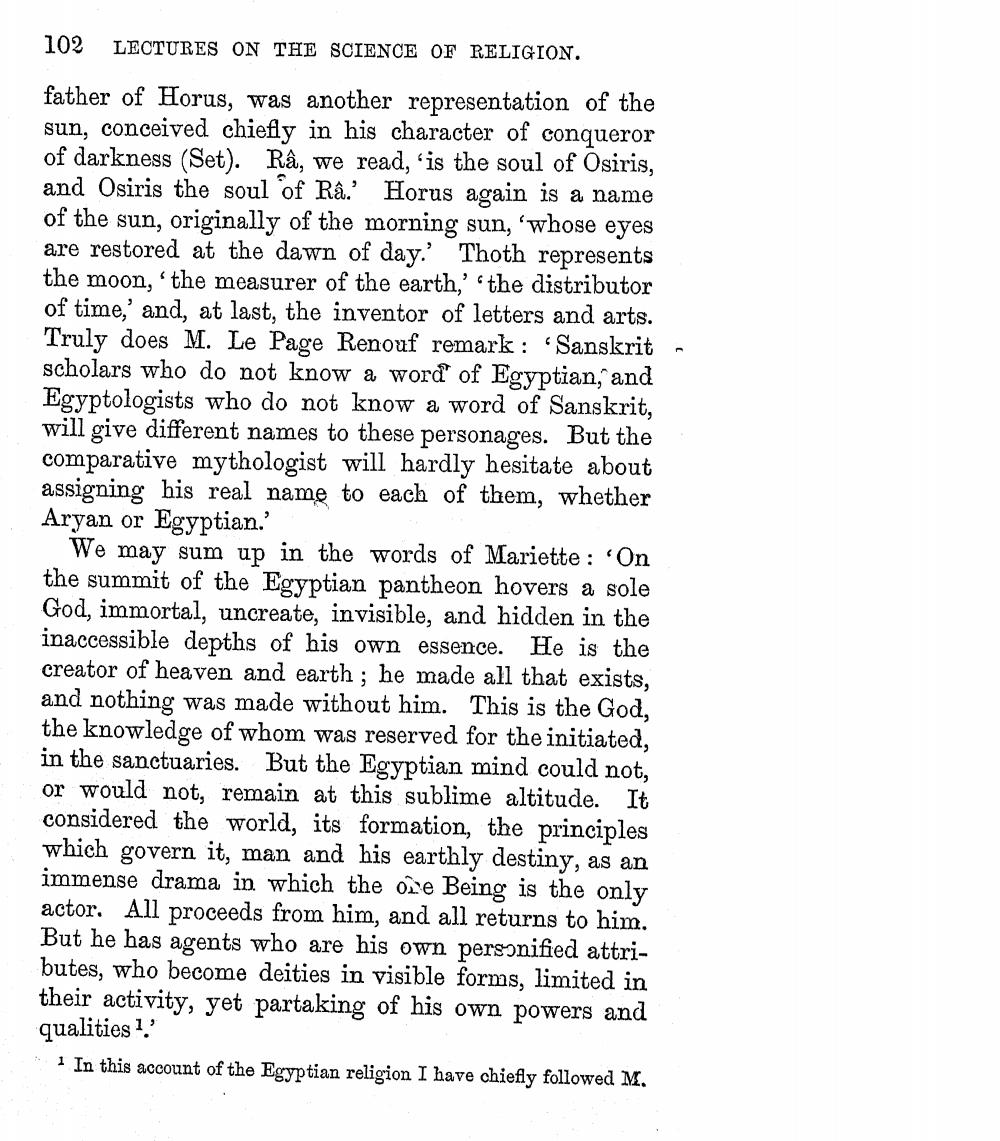________________
102
father of Horus, was another representation of the sun, conceived chiefly in his character of conqueror of darkness (Set). Râ, we read, 'is the soul of Osiris, and Osiris the soul of Râ.' Horus again is a name of the sun, originally of the morning sun, 'whose eyes are restored at the dawn of day.' Thoth represents the moon, 'the measurer of the earth,' the distributor of time,' and, at last, the inventor of letters and arts. Truly does M. Le Page Renouf remark: 'Sanskrit scholars who do not know a word of Egyptian, and Egyptologists who do not know a word of Sanskrit, will give different names to these personages. But the comparative mythologist will hardly hesitate about assigning his real name to each of them, whether Aryan or Egyptian.'
LECTURES ON THE SCIENCE OF RELIGION.
We may sum up in the words of Mariette: 'On the summit of the Egyptian pantheon hovers a sole God, immortal, uncreate, invisible, and hidden in the inaccessible depths of his own essence. He is the creator of heaven and earth; he made all that exists, and nothing was made without him. This is the God, the knowledge of whom was reserved for the initiated, in the sanctuaries. But the Egyptian mind could not, or would not, remain at this sublime altitude. It considered the world, its formation, the principles which govern it, man and his earthly destiny, as an immense drama in which the one Being is the only actor. All proceeds from him, and all returns to him. But he has agents who are his own personified attributes, who become deities in visible forms, limited in their activity, yet partaking of his own powers and qualities 1.'
1 In this account of the Egyptian religion I have chiefly followed M.
L




